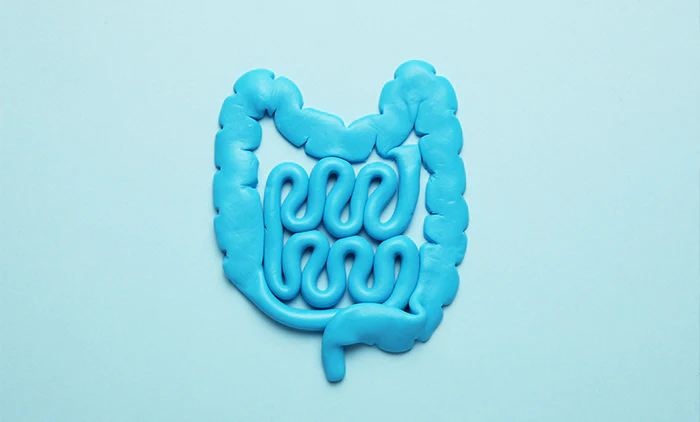What you’ll learn in this blog |
It’s frustrating when we reach a particular stage in our weight loss journey where nothing seems to work. We’re exercising and eating all the right things, but the weight isn’t shifting.
We know that diet and exercise can take their toll on our bodies, but perhaps the most draining aspect is mental, especially when things aren’t going to plan.
So what happens when we hit the wall?
What else can we do?
Those looking for the weight to fly off every week might want to rethink their strategy, and sometimes it’s not about the big things you do but the small things you do continuously.
We’re exploring the impact that marginal gains can have on losing weight and how to use it to your advantage.
What is the theory of marginal gains?
The idea behind the marginal gains theory has its roots in the Japanese word ‘kaizen,’ which means to change for the better, no matter how small. It’s a theory that believes that small changes can significantly affect many aspects of our lives.
Marginal gains is the theory that improving and optimizing your performance by a small amount across several different areas will lead to much more significant, noticeable improvements overall.
How can the theory of marginal gains help with weight loss?
The best example of how marginal gains can affect our health positively is the massive success of the British cycling team in the 2000s. Professional cycling performance director Sir David Brailsford isolated some critical success factors. He believed that if you could make incremental improvements in each part of your training and improve them by just 1% each, you would significantly increase overall performance. 
The results spoke for themselves - the British cycling team dominated cycling in the Olympic Games in 2008 and 2012, including seven world records. They had a serious competitive advantage by focusing on small gains in different areas.
The marginal gains philosophy states that a small gain can provide continuous improvement, and your weight loss goals are no exception to that rule.
Just making a slight change in different areas of your daily routine can make a big difference; it can often be so small you hardly notice it.
What small changes can I make?
The best marginal gains approach involves small changes that don’t disrupt what you would typically do during the day.
Taking a couple of hours out to drive to the gym and back with a workout in-between will take up some time and is likely to put pressure on your daily schedule, but if we think cleverly, we can adapt and introduce small changes instead.
These changes can have a massive impact over time but very little impact on our day-to-day lives.
Swop sitting for standing
The average adult spends more than half their waking hours sitting down. Sitting for more than 8 hours per day could increase your risk of dying by 15%. That’s pretty grim reading, but it sends a stark warning that we are getting too comfortable in our chairs.
Stand whenever you can. Try a standing desk instead if you work at a desk. If you’re having a meeting, try a standing one rather than a seated one.
Watching TV is a big culprit in all of this, but if you prefer to sit down when watching, try to limit the amount of television you watch to a maximum of a couple of hours a day.
Go for a walk at a particular time each day
If you’re used to jumping on the sofa after dinner, why not kill two birds with one stone by ditching the TV for half an hour and burning some calories by going for a walk?
Making this a regular habit means it will become second nature. And a 30-minute walk per day over a year will burn over 20,000 calories. That is not bad for a small change.
If you can’t fit in a 30-minute walk every day, try to walk as much as you can whenever possible. If you don’t need to take the car to pick up something from the shops, use your legs instead.
Change your regular treats to low-calorie ones
Yes, we all like a snack occasionally, but if you’re used to having a bar of chocolate once a day, switch to a low-calorie version.
This could lower your annual calorie intake by around 40,000 calories! It’s a small change but will add up in the long term. If you can take a more significant step and switch to fruit instead, so much the better.
Carry a reusable water bottle with you…
Sometimes we can be thirsty, but our bodies confuse it for hunger. Taking in water quenches our thirst and helps stave off hunger.
Taking a sip here and there will help keep you away from the snack drawer, and when you come to eat a main meal, you’ll find you won’t be quite as hungry, and your calorie intake will be less.
Get a little more sleep…
A lack of sleep can result in additional stress, which can make us reach for comfort food. An extra half-hour of sleep can go a long way. If we feel tired from lack of sleep, we often reach for adrenaline-boosting snacks, which can also harm our weight loss goals.
Make adjustments to your social life…
Too often, we think our social life should revolve around eating and drinking. Try to change it up a bit and go walking, bowling, ice skating or anything that won’t involve you sitting down and consuming calories. Mixing it up even slightly can make a huge difference.
Add more vegetables to your dinner plate and less meat….
This is a psychological trick, and it works well. Reducing the number of calories on your plate by adding low-cal options and reducing the high-calorie items is a great way to trick your brain. You still have a full plate, but better choices take up the space. If you do this each mealtime, consider the calories you’ll save long-term.
Try and add just one additional vegetable to your dinner plate. Once you are used to this, you can add another - until 70% of your dinner plate is vegetables.
Ready to make small changes?
Big changes can be daunting! But they are also hard to maintain, and ultimately, the small changes will impact your life most significantly.
This is especially true if you’ve not got a tonne of weight to shift or if you’ve found yourself hitting a plateau. Over time small things add up and are sustainable - ensuring that you keep up your weight loss journey.
And if you want to get things moving in the right direction, why not add PhenQ to your list?
PhenQ also makes changes in different areas to achieve significant gains. It not only burns fat, but it also stops fat production, suppresses your appetite, improves your mood and increases your energy! Using PhenQ alongside your small changes will help accelerate you toward your weight loss goal.



